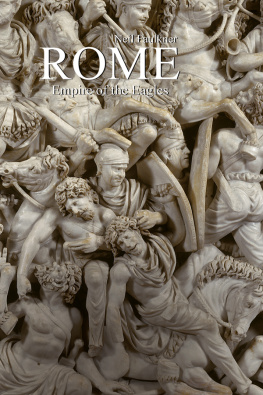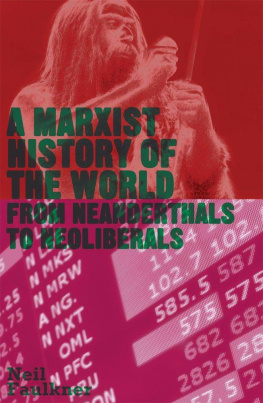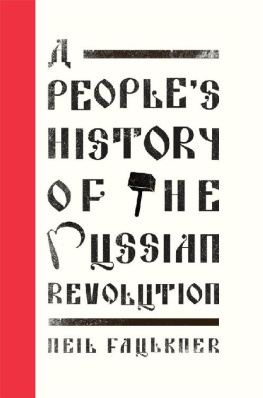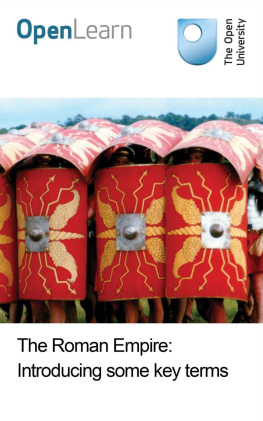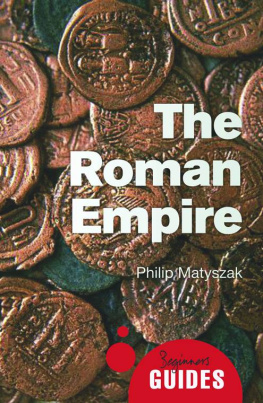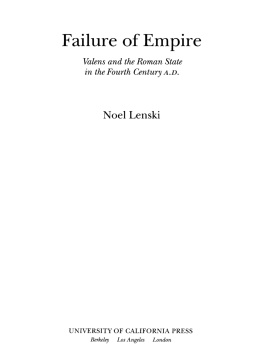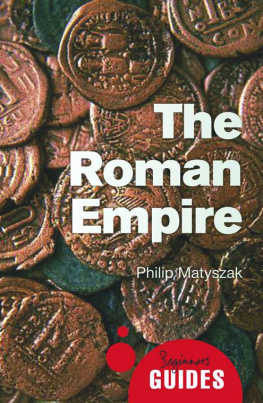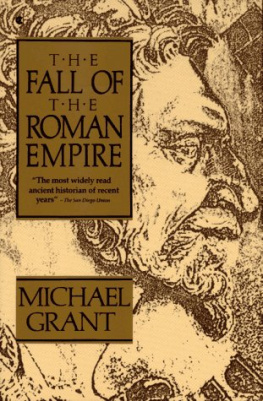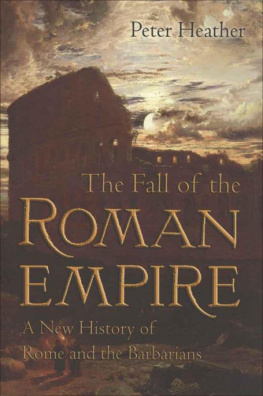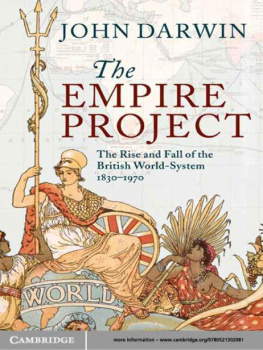I am very grateful to Tim Cornell, Richard Gosling, Steve Roskams and Philip de Souza for the time taken to read and critique this book in draft. Significant corrections are the result. Needless to say, none of these readers is in any way responsible for what follows. I am also grateful to the many, often very vocal, adult education students whom it was my great pleasure to teach and debate with at Richmond Adult and Community College and The City Literary Institute.
Publishers acknowledgements
We are grateful to the following for permission to reproduce copyright material:
Bridgeman Art Library/Somerset County Museum, Taunton Castle, UK, for .
In some instances we have been unable to trace the owners of copyright material, and we would appreciate any information that would enable us to do so.
The list of references is divided into two parts. I first list the translations actually used, then give page references for the direct quotations that appear in the text. Where secondary sources are cited, the full reference will be found in Bibliographical notes .
Classical sources
Ammianus Marcellinus, The Later Roman Empire, AD 354378 , trans. W. Hamilton, 1986, London, Penguin.
Anonymous, Lives of the Later Caesars , trans. A. Birley, 1976, London, Penguin.
Appian, The Civil Wars , trans. J. Carter, 1996, London, Penguin.
Apuleius, The Golden Ass , trans. R. Graves, 1950, Harmondsworth, Penguin.
Caesar, The Civil War , trans. J.F. Gardner, 1967, Harmondsworth, Penguin.
Caesar, The Conquest of Gaul , trans. S.A. Handford and J.F. Gardner, 1982, Harmondsworth, Penguin.
Horace, The Odes of Horace , trans. J. Michie, 1967, Harmondsworth, Penguin.
Livy, The Early History of Rome (Books 15), trans. A. de Slincourt, 1960, Harmondsworth, Penguin.
Livy, Rome and Italy (Books 610), trans. B. Radice, 1982, London, Penguin.
Livy, The War with Hannibal (Books 2130), trans. A. de Slincourt, 1965, Harmondsworth, Penguin.
Livy, Rome and the Mediterranean (Books 3145), trans. H. Bettenson, 1976, London, Penguin.
Pliny the Younger, The Letters of the Younger Pliny , trans. B. Radice, 1969, London, Harmondsworth.
Plutarch, Plutarchs Lives , trans. J. Dryden, revised by A.H. Clough, undated, London, Dent.
Polybius, The Rise of the Roman Empire , trans. I. Scott-Kilvert, 1979, Harmondsworth, Penguin.
Sallust, The Jugurthine War and the Conspiracy of Catiline , trans. S.A. Handford, 1963, Harmondsworth, Penguin.
Suetonius, The Twelve Caesars , trans. R. Graves, 1957, Harmondsworth, Penguin.
Tacitus, The Agricola and the Germania , trans. H. Mattingly and S.A. Handford, 1970, Harmondsworth, Penguin.
Tacitus, The Annals of Imperial Rome , trans. M. Grant, 1977, Harmondsworth, Penguin.
Tacitus, The Histories , trans. K. Wellesley, 1986, Harmondsworth, Penguin.
Thucydides, History of the Peloponnesian War , trans. R. Warner, 1972, London, Penguin.
Virgil, The Aeneid , trans. W.F. Jackson Knight, 1958, Harmondsworth, Penguin.
Primary source collections
N. Lewis and M. Reinhold, Roman Civilization, Volume I: Selected Readings: the Republic and the Augustan Age , 1990, New York, Columbia University.
N. Lewis and M. Reinhold, Roman Civilization, Sourcebook II: The Empire , 1966, New York, Harper & Row.
London Association of Classical Teachers (LACTOR 4), Inscriptions of Roman Britain , ed. V.A. Maxfield and B. Dobson, 1995 (3rd edn), London.
London Association of Classical Teachers (LACTOR 11), Literary Sources for Roman Britain , ed. J.C. Mann and R.G. Penman, 1985 (2nd edn), London.
Quotations
Prologue
- Virgil, The Aeneid , 172173.
- Virgil, The Aeneid , 149.
- Virgil, The Aeneid , 223.
- Virgil, The Aeneid , 338.
- Livy, History of Rome , Book 1, 1718.
- Quoted in Crawford 1992, 9.
- Livy, History of Rome , Book 1, 18.
Chapter 1
- Virgil, The Aeneid , 175176.
- Horace, Book 1, Ode 7, 31.
- Plutarch, Romulus , 36.
- Livy, History of Rome , Book 1, 79.
- Cary 1935, 77.
- Polybius, History of Rome , Book VI, 312317.
- Quoted in Cornell and Matthews 1982, Atlas of the Roman World , 41.
Chapter 2
- Livy, History of Rome , Book 8, 177.
- Cornell 1995, 367.
- Thucydides, The Peloponnesian War , Book 2, 147.
- Plutarch, Pyrrhus , 55.
- Plutarch, Pyrrhus , 58.
- Finley 1968, 74.
- Finley 1968, 87.
- Polybius, History of Rome , Book 1, 61.
- Polybius, History of Rome , Book 1, 6566.
- Polybius, History of Rome , Book 2, 140.
- Livy, History of Rome , Book 21, 2324.
- Harris 1985, 205.
- Livy, History of Rome , Book 21, 4142.
- Livy, History of Rome , Book 31, 2728.
- Polybius, History of Rome , Book 18, 511513.
- Polybius, History of Rome , Book 18, 516.
- Quoted in Crawford 1992, 59.
- Harris 1985, 225.
Chapter 3
- Brunt 1986, 2.
- Pliny the Younger, Letters , 105106.
- Plutarch, Tiberius Gracchus , 132.
- Appian, Roman History , Book 1, 5.
- Apuleius, The Golden Ass , 169170.
- Brunt 1986, 92.
- Quoted in Lewis and Reinhold 1966, 353354.
- Cary 1935, 312313.
- Plutarch, Gaius Marius , 100.
- Quoted in Lewis and Reinhold 1990, 396.
- Plutarch, Pompey , 385386.
- Quoted in Cooley and Cooley 2004, 21.
- Quoted in Cooley and Cooley 2004, 53.
- Plutarch, Pompey , 425.
- Plutarch, Pompey , 432433.
- Sallust, The Conspiracy of Catiline , 178.
- Parenti 2003, 87.
- Sallust, The Conspiracy of Catiline , 219220.
- Appian, The Civil Wars , 8788.
- Cornell and Matthews 1982, 70.
- Suetonius, Augustus , 57.
- Cary 1935, 442.
- Virgil, The Aeneid , 222.
Chapter 4
- Suetonius, Augustus , 66.
- Quoted in Lewis and Reinhold 1966, 919 passim .
- Quoted in Lewis and Reinhold 1966, 19.
- Suetonius, Augustus , 62.
- Tacitus, Annals , 226.
- Levick 1993, 148.
- Tacitus, Agricola , 64.
- LACTOR 4, 88.
- Tacitus, Agricola , 7273.
- Tacitus, Agricola , 91.
- Tacitus, Agricola , 91.
- Suetonius, Domitian , 297.
- Quoted in Connolly 1988b, 25.
- Quoted in Lewis and Reinhold 1966, 507.
- Quoted in Lewis and Reinhold 1966, 509.
- Gibbon, The History of the Decline and Fall of the Roman Empire , Chapter 1.
Chapter 5
- Quoted in Jackson 1995, 174.
- Quoted in Jackson 1995, 174.
- LACTOR 11, 38.
- Quoted in Birley 1999, 35.
- LACTOR 11, 38.
- Quoted in Parker 1935, 90.
- Quoted in de Ste Croix 1981, 477.
- Quoted in de Ste Croix 1981, 478.
- Quoted in de Ste Croix 1981, 478.
- Quoted in Raven 1969, 140.
- Quoted in Lewis and Reinhold 1966, 429.
- Quoted in Lewis and Reinhold 1966, 430.
- Ammianus Marcellinus, History of Rome , Book 30, 406.
Where do we come from? Who are our ancestors? Who built the place where we live? In short, who are we? The Romans were bound to ask such questions. By the time of the Emperor Augustus (31 BC to AD 14) and probably long before they had clear answers.
Stories about the origins of Rome and the Romans survive in the works of two of the Augustan Ages leading men of letters: in Virgils epic poem The Aeneid , and in Book 1 of Livys History of Rome . From them we learn that Rome by then the capital city of a global superpower was conceived as an imperial phoenix rising from the flames of burning Troy over a thousand years before.

